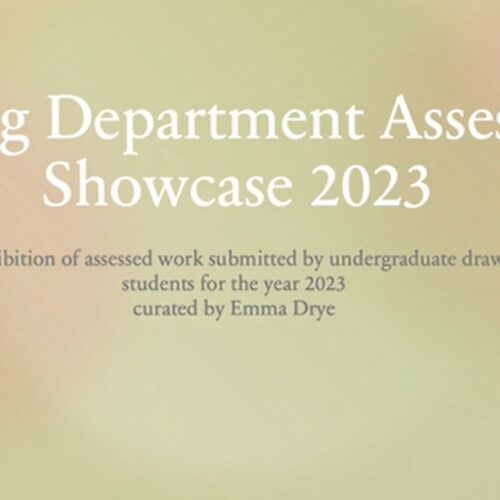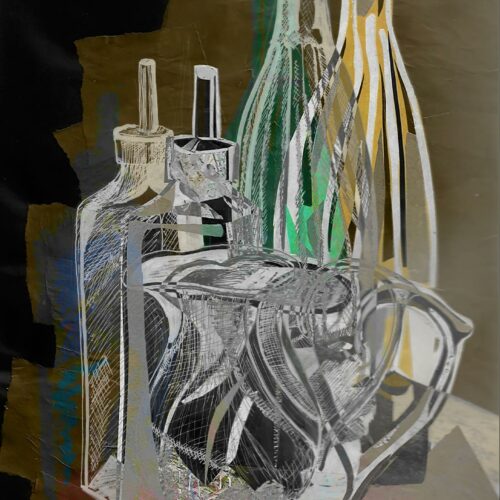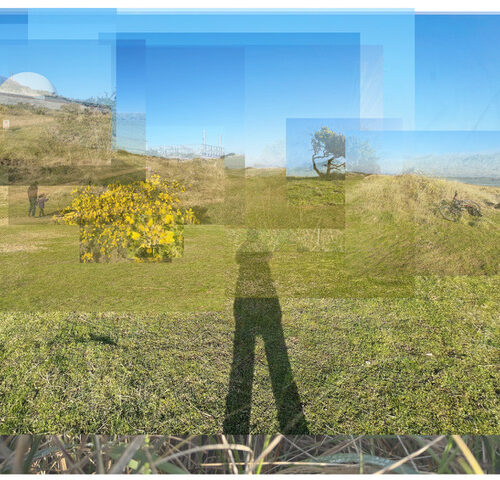
rarescale summer school – a level 1 student's experience
On a warm July morning, twenty one musicians descended on Harlaxton manor for five days of flute playing and composing at the annual rarescale summer school. An eclectic bunch, the flautists ranged from talented amateurs to music college graduates embarking on performing careers, and the composition group consisted of undergraduate music students and early career composers. As the only Level 1 composition student I was more than a little intimidated, but I had nothing to fear – everyone was there to learn, make new friends and connections, and above all simply enjoy making music together.

After the introductions were made and the initial excitement of discovering the beautiful nineteenth century mansion that was to be our home for the next few days settled down, the flautists separated off for ensemble work under the wing of OCA tutor and rarescale artistic director Carla Rees. The composition group, led by composer and Royal College of Music professor Michael Oliva, began with a round-the-table discussion on our experience in electroacoustic composition which was to be the focus of the taught classes. Then the bombshell was dropped – we were tasked with writing a short piece of music for flutes and/or electronics to be performed at the end of the week! Panic set in – how on earth was I going to write something good enough in just four days? Thankfully a pleasant evening spent with new friends at the village pub was a welcome distraction.

On the second day we continued classes on electroacoustic music, including theoretical foundations on oscillators, filters and sonic transformations. This was followed by some practical sessions using the Logic Pro software, as well as fascinating discussions about the history of electroacoustic music and the possibilities that can be created from incorporating live electronics into a performance. After dinner the flautists and composers reconvened for some demonstrations of the different types of flutes; we heard the full range from piccolo right through to the rare contrabass. This included a valuable discussion about the unique qualities and challenges of playing each one, and demonstrations of various extended techniques.

As Wednesday morning broke, I realised that to avoid the flautists having to sight-read my composition at the end of week concert (not my ideal scenario!), I had better get moving. I found a quiet corner in the idyllic conservatory and set to work in earnest on a quartet for alto flutes. As I had been recently learning about medieval modes, I decided to explore this in my piece and settled on the Phrygian mode – this has a mysterious quality to it which I thought would work well with the mellow tone of the alto instrument. I incorporated percussive tongue rams, pitch bend and flutter tonguing to create the feel of a hypnotic trance, and made good use of the flautists to try out my ideas. In the evening it was our turn to relax and we were treated to a fabulous concert of Baroque and contemporary music by rarescale in the Great Hall.

Thursday passed in somewhat of a blur – more electroacoustic music classes, composition time and a one-to-one session with Michael on my piece, which I titled ‘Charm’. On Friday morning I completed the finishing touches and printed out the parts ready for the pre-concert rehearsal – there was no going back now! It was fascinating to see what different directions we had all gone in; the other composers had incorporated many different styles and techniques into their pieces including a folk melody flute duet, multiphonics on prepared recorder, live electronics based on sampled sounds from around the house, and a recording of the Harlaxton bell. The informal concert was the perfect way to end a fantastic week – we were all amazed by how much everyone had managed to achieve in such a short space of time.

Images: Derek Rees






Sounds like a wonderful few days. Very interesting indeed with a wide range of musical styles.